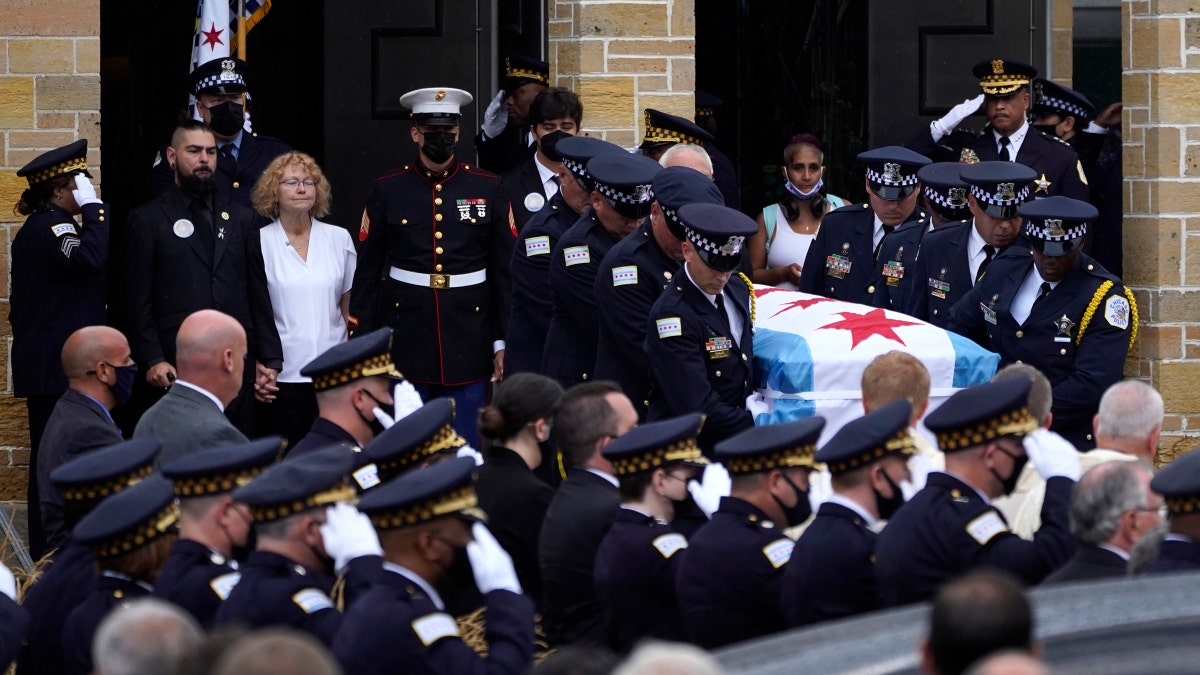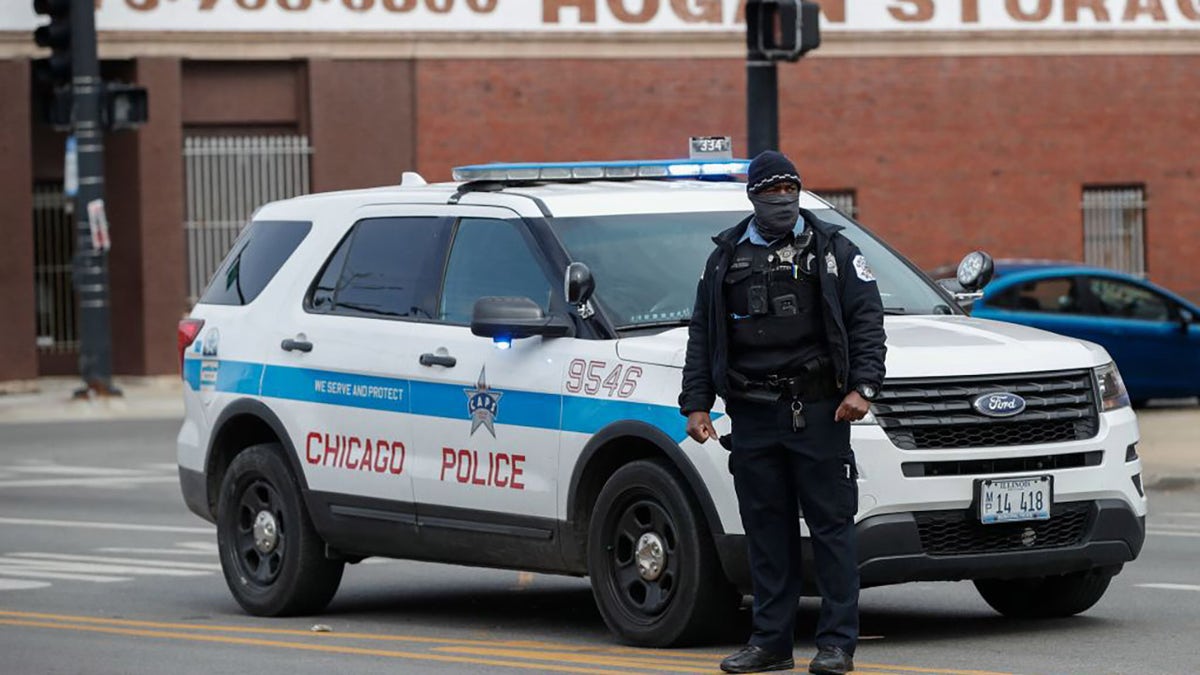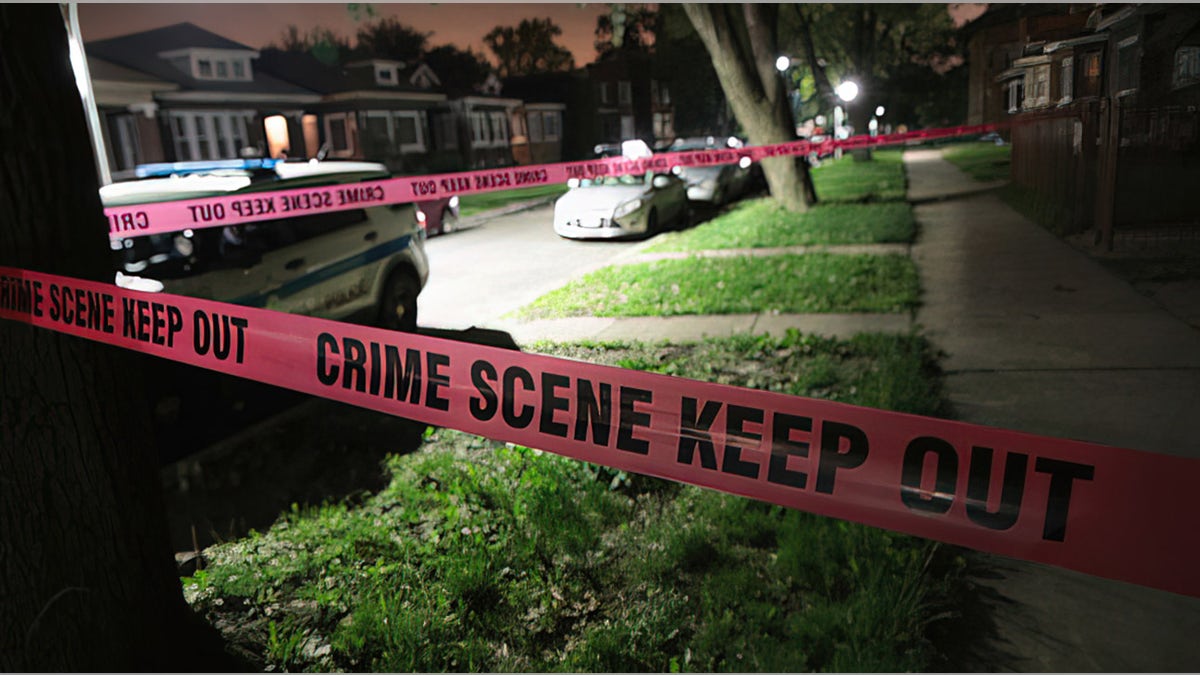Fox News Flash top headlines for January 1
Fox News Flash top headlines are here. Check out what's clicking on Foxnews.com.
The year of 2021 ended as one of the most violent on record in Chicago, as a rise in the number of shootings left more people dead than in any single year in a quarter century, according to statistics released by the police department on Saturday.
According to the department, 2021 ended with 797 homicides. That is 25 more than were recorded 2020, 299 more than in 2019 and the most since 1996. And there were 3,561 shooting incidents in 2021, which is just over 300 more than were recorded in 2020 and a staggering 1,415 more shooting incidents than were recorded in the city in 2019.

Elizabeth French, in white, and her son Andrew, left, follow the casket of her daughter, Chicago police officer Ella French, after a funeral service at the St. Rita of Cascia Shrine Chapel Thursday, Aug. 19, 2021, in Chicago.(AP Photo/Charles Rex Arbogast, File)
Other cities have also seen an increase in the number of homicides. But Chicago, as it has in previous years, ended 2021 with more homicides than any other city in the United States, including New York and Los Angeles, both of which had recorded at least 300 fewer homicides than Chicago for the year as of late December, according to police data from those cities.
SIX PEOPLE INJURED AFTER SHOOTING AT LOS ANGELES GROCERY STORE
"We all know this has been a challenging year here in the city of Chicago," Police Superintendent David Brown told reporters at a news conference earlier this week. "Too many families are reeling from the loss of (loved) ones due to senseless gun violence."

A Chicago Police officer monitors the scene after a shooting in Chicago, Illinois, on March 14, 2021. (Photo by KAMIL KRZACZYNSKI / AFP) (Photo by KAMIL KRZACZYNSKI/AFP via Getty Images)
Brown said the bulk of the homicides are the result of conflicts between rival gangs.
He has tried to highlight some positive statistics when discussing the monthly crime figures and he continued to do so with the release of the end-of-the-year statistics.
He said, for example, that the department cleared 400 homicides — a total that was higher than in any year in nearly two decades. Saturday's news release did not specify how many of those cleared homicides were committed in previous years but reported that the clearance rate for the killings was just under 50%.

CHICAGO, IL - MAY 27: Crime scene tape is stretched around the front of a home where a man was shot on May 28, 2017 in Chicago, Illinois. (Photo by Scott Olson/Getty Images) ( Scott Olson/Getty Images)
The department, which says it takes more illegal weapons off the street than any other local police force in the United States, said that it took a record 12,088 guns off the street in 2021. That total coincided with the creation of a Gun Investigations Team that has focused on interrupting the flow of illegal guns into the city.
PHILADELPHIA'S RECORD VIOLENCE SPILLS INTO NEW YEAR AFTER AT LEAST 3 KILLED, 7 WOUNDED IN SHOOTINGS
Brown, who came under scrutiny by some members of the City Council and others as the death toll mounted, said that he hopes to increase the number of detectives investigating violent crimes from 1,100 to 1,300 during the first few months of this year. And he said his goal is to reduce the caseload for detectives from about five to three cases per detective.
CLICK HERE TO GET THE FOX NEWS APP
He also said the department hopes to recruit more new officers this year, and said, "There will be more officers on the street, not just in patrol cars or behind desks, to interact with all Chicagoans."


